Jordan MPs urge government to expel Israeli envoy over al-Aqsa provocations
Jordanian lawmakers have called on the government to expel Israel’s ambassador and review a 1994 peace treaty with Tel Aviv in protest at the regime’s recent provocations and violation of international law at the al-Aqsa Mosque compound.
During an emergency parliamentary session attended by Jordanian Foreign Minister Ayman Safadi in Amman on Monday, members of the House of Representative discussed 17 non-binding recommendations on Amman's relations with Tel Aviv, Jordan’s Al-Mamlaka TV reported.
The recommendations included “expelling the ambassador of the Zionist entity in Amman,” closing the Israeli embassy, recalling Jordan’s ambassador to Tel Aviv, halting “all forms of normalization,” reviewing the 1994 peace treaty, affirming the size of the 144-dunam Al-Aqsa Mosque compound, backing Jordan’s continued custodianship of the holy site, and rejecting an Israeli plot to divide the sacred area into Muslim-only and Jewish-only sections.
Jordan and Egypt are the only Arab countries that have formal relations with the regime in Israel.
On August 11, which marked the Muslim occasion of Eid al-Adha (Feast of Sacrifice), Israeli forces attacked Palestinian worshipers at the al-Aqsa Mosque compound, prompting violent clashes at the site.
The violence erupted after Israeli policemen fired stun grenades and tear gas at the Palestinians who had finished their Eid prayers at the compound, allowing, in a rare move, Israeli settlers to enter the holy site to mark the fasting and mourning day of Tisha B’Av.
According to the Palestinian Red Crescent, the clashes had left 61 Palestinians wounded.
Two days after the confrontations, Israeli Public Security Minister Gilad Erdan said that he believes the status quo at the al-Aqsa Mosque compound should be changed to allow Israelis to pray there.
He also estimated that 1,729 Israelis had entered the compound on August 11.
Speaking at Monday’s parliamentary session, Jordanian Foreign Minister Ayman Safadi stressed his country’s “unwavering position” on Israeli-occupied Jerusalem al-Quds as a redline, adding that protecting Islamic and Christian holy sites in the occupied city is a “responsibility” of Amman.
Jordan, he added, “will do its utmost to protect the holy sites and face the futile Israeli actions targeting them. We condemn the Israeli occupation authorities’ provocative practices and ongoing violation of international law, as well as their attempts change the historical and legal situation in occupied Jerusalem and its holy sites.”
The top Jordanian diplomat also warned that Israel’s actions will “aggravate the conflict, increase tensions and lead to an explosion, thus threatening international peace and security.”
Meanwhile, House of Representatives Speaker Atef Tarawneh called an informal voice vote to accept the recommendations, after which many MPs shouted their agreement.
He further urged the government to relay a message to Israel that “peace is threatened in light of its continued aggression against Jerusalem and al-Aqsa Mosque.”
After the meeting, Yahya al-Saud, head of the parliament’s Palestine committee, said the lawmakers had agreed to hold a sit-in at the Allenby Bridge, which connects the occupied West Bank with Jordan, on Friday.
On Sunday, Jordan’s Ministry of Foreign Affairs summoned the Israeli ambassador to Amman and asked him to convey a message to the Tel Aviv regime that it “must immediately cease all violations and attempts aimed at changing the historical and legal situation in the holy compound.”
On the same day, Safadi met with European Union representatives to “stress urgency of effective int’l steps against Israeli violations of holy sites in occupied Jerusalem (al-Quds).”
The Jewish visitation of al-Aqsa is permitted, but, according to an agreement signed between Israel and the Jordanian government after Israel’s occupation of East Jerusalem al-Quds in 1967, non-Muslim worship at the compound is prohibited.
The site is sacred to both Muslims and Jews.
Turkey's foreign minister meets Syria's de facto leader in Damascus
'Next to impossible' to rescue patients from Gaza's Kamal Adwan Hospital: Director
VIDEO | Vietnam current prosperity
Report blames gasoil exports for shortage at Iranian power plants
VIDEO | Hind Rajab Foundation names Israeli war criminals vacationing after Gaza genocide
VIDEO | Australians rally for Gaza ahead of Christmas festivities
VIDEO | Attacks on Sana'a
Iran reports further drop in annual inflation rate in December




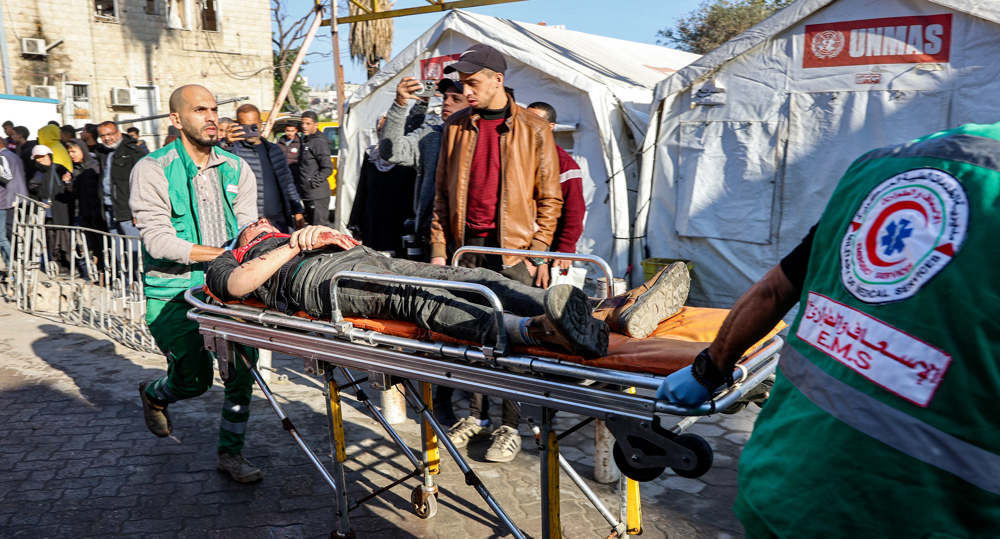

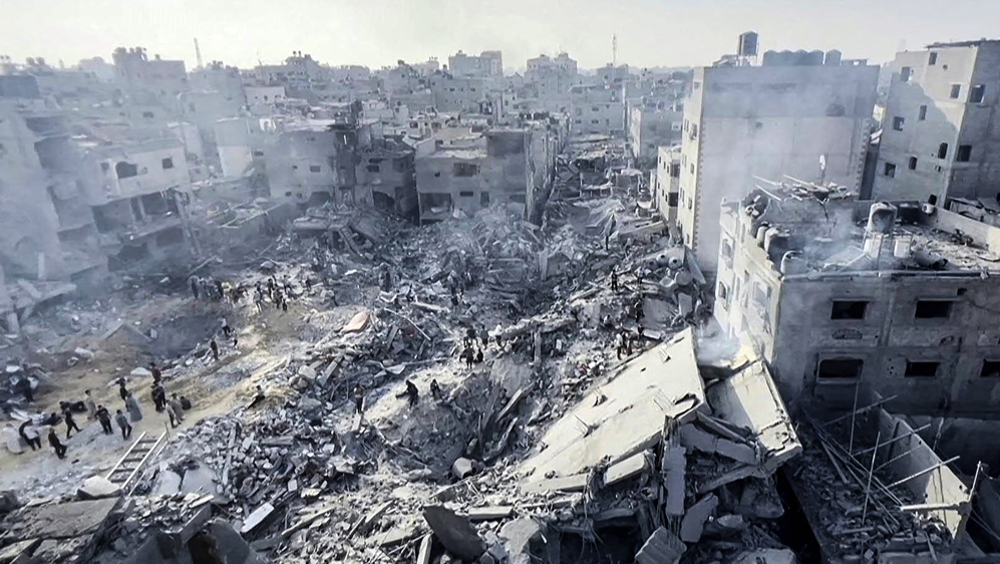



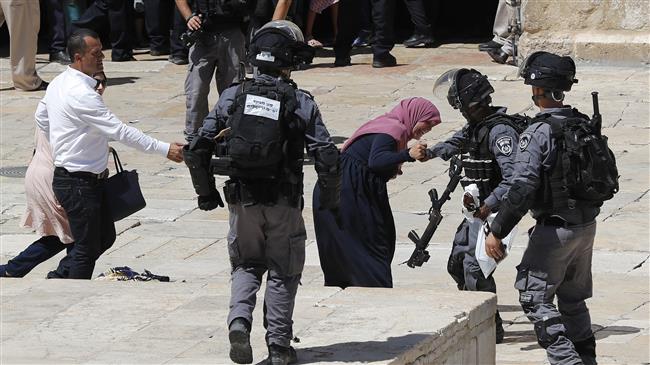
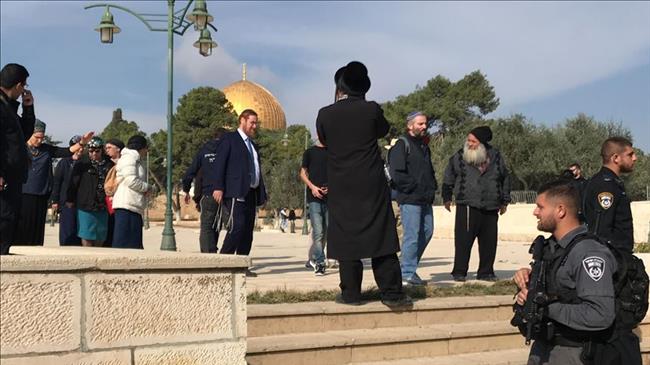
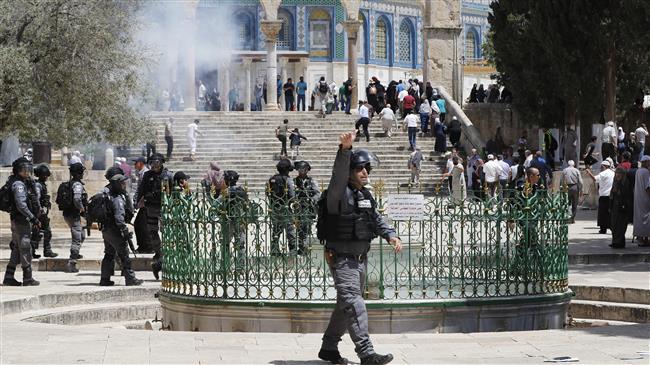

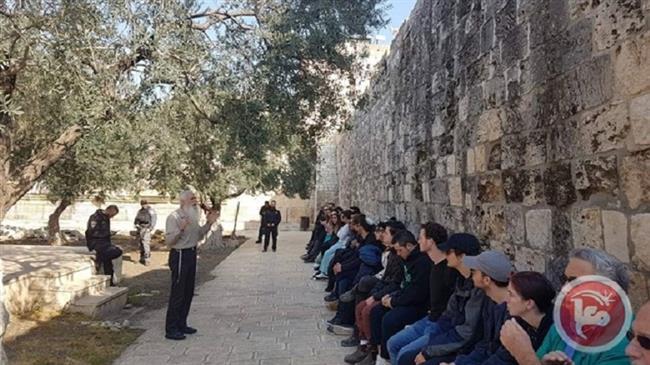

 This makes it easy to access the Press TV website
This makes it easy to access the Press TV website